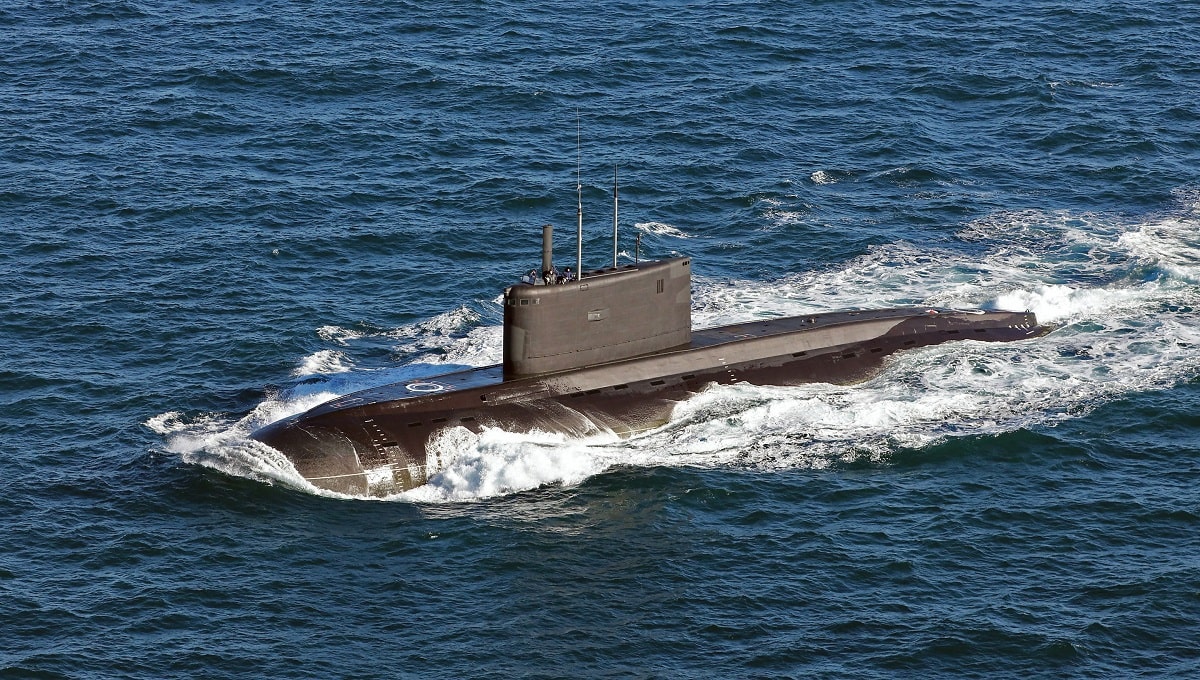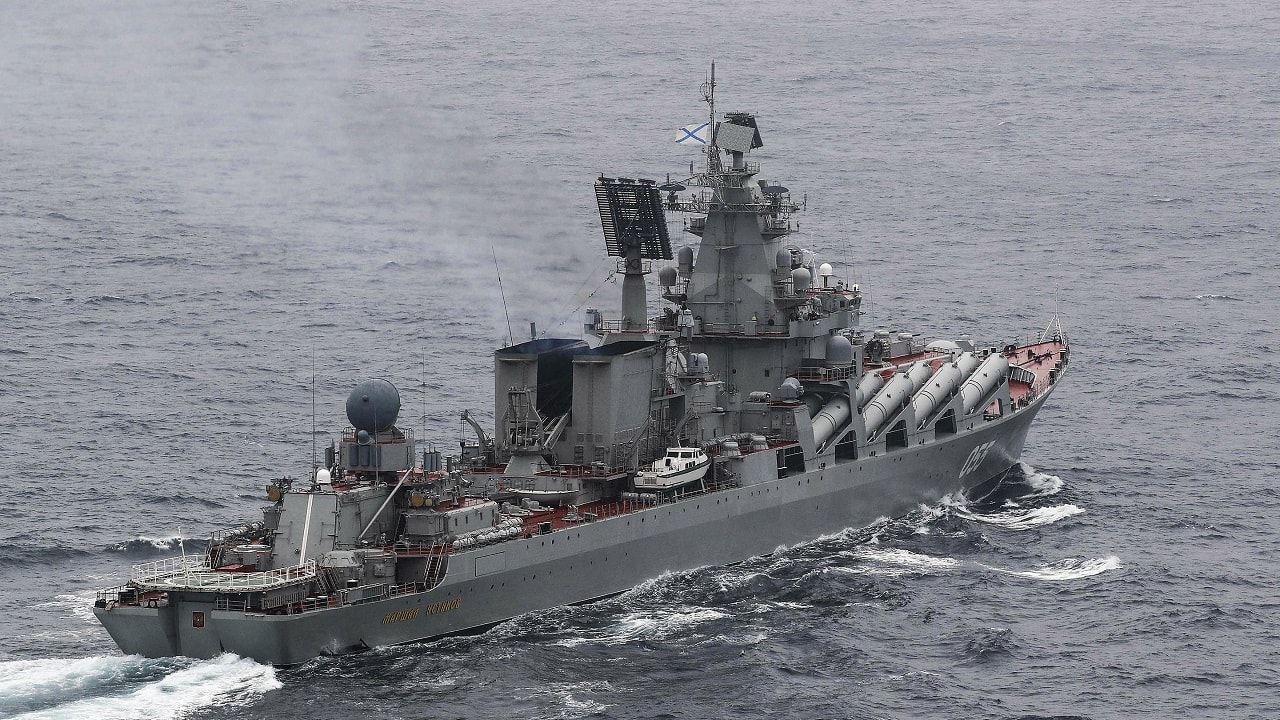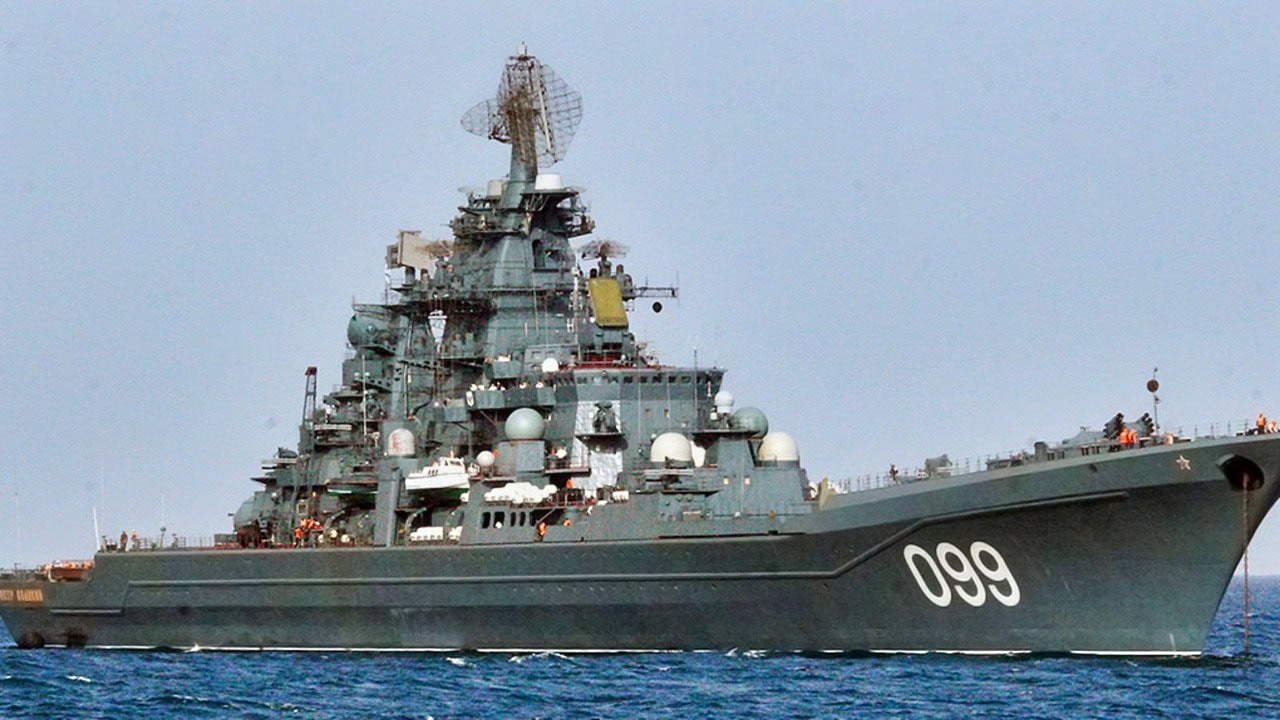Russia’s Navy Is Hanging by a Thread in the Middle East: Wannabe empires get over-extended, especially when a country’s military is already struggling in a war of attrition. Such is the case for the Russian Navy, which has tried to deploy outside its neighborhood or “Near abroad.” This expansion is a foolhardy strategy since Moscow has a tenuous grasp of the defense situation in Ukraine in the first place. Take, for example, the latest embarrassment the Russian Navy endured when a spy ship in the Mediterranean Sea burst into flames recently.
Not a Good Look for the Russian Navy
The incident happened to the Kildin spying vessel near the coast of Syria on January 30. Heavy black smoke and fire burst from the ship, and the captain even sent a signal that the crew had no control over it. The ship’s command had to communicate with a nearby freighter from Togo that it was in trouble. Sailors on the Kildin were ready to abandon the ship and prepared lifeboats.
Comedy of Errors
Fortunately for the Russians, the call to disembark from the Kildin did not come; the fire was put out after five hours, and the vessel resumed its mission. Meanwhile, the landing ships Ivan Gren and the Aleksandr Otrakovsky lost control of steering during the rush to save the Kildin.
The spy ship was attempting to watch over Syria. The Russian military has struggled with a testy leadership transition after the fall of Bashar al-Assad. Russia’s Tartus naval base in Syria is not what it used to be, and the military is moving defense material out of Syria as the security situation has changed.
More Troubles in the Region
This wasn’t the only Russian ship to underperform in the Middle East. Two months earlier, the Russian missile frigate Admiral Gorshkov also burst into flames.
Military analyst Michael Kofman, who has made a name for himself during the war in Ukraine and is an expert on all things defense-related with Russia, had a gloomy outlook on the Russian Navy’s performance in the region.
“The Russian Navy has historically struggled with maintenance and readiness issues. Fires are not uncommon. Operations are undoubtedly taking a toll on an aging Russian fleet, which lacks sufficient maintenance and support facilities,” Kofman said.
New Political Leadership Could Stop All Russian Naval Activity in Tartus
A stoppage of naval activity means the key naval installation in Tartus must improve its performance when caring for Russian ships, but it has limited ability. The new leadership in Syria, the Hayat Tahrir al-Sham (HTS), could even completely ban Russia from operating out of Tartus.
This would mean that Russian naval operations in the Mediterranean could cease altogether without a facility to refuel and re-supply. The Navy would then have to depend on Libya, which is not a good choice.
One of the problems that expert Sidharth Kaushal at the Royal United Service Institute in London has outlined is the size of Russian ships in the Middle East. Kaushal believes these vessels are too small and loaded down with munitions to handle the day-to-day rigors that depend on supporting commercial vessels filled with Russian agricultural exports. The Russian Navy suffers from poor maintenance practices at Tartus, and the vessels fall into disrepair with fires and other maladies creeping up.
To make matters worse, the new Syrian government has axed an agreement with a Russian private contractor to service Tartus. The company called Budtransgaz had a long lease with the base and planned to pour $500 million to modernize it so Russian ships would have a more robust means to maintain, repair, and replenish ships.

Pictured is a Kilo-Class Russian Submarine in the English Channel. The image was taken from Royal Navy Wildcat HMA2 Helicopter of 815 Naval Air Squadron. Kilo class is the NATO reporting name for the diesel-electric attack submarine.
The Need for a Diplomatic Solution
This means Russia may have to leave the facility altogether unless they can invigorate the relationship with HTS. The group could be angling for more money from the Russian government, which is already strapped for cash due to sanctions from the war in Ukraine.
The whole saga shows that Russia does not have a “Blue Water” navy that can conduct satisfactory operations outside of its Near Abroad. No aircraft carrier can “wield a big stick” and project power. Fewer submarines can sail, and the commercial shipping that provides hard currency to Russian firms will be curtailed.
Vladimir Putin has a decision to make. Abandon the Middle East entirely and bring everything and everybody home or somehow crack on with underperforming ships and inexperienced crews operating out of a warm water port that may be closed someday. Knowing Putin, he will probably not decide anytime soon since his attention is focused on Ukraine.
This shows that Russia has no plan for its Navy in general—a service branch that has lost favor due to the priority of land warfare over maritime strategy. HTS will eventually work with the Russians, and Tartus won’t be abandoned entirely.

From Russian Navy. Helicopter of Russian cruiser Marshal Ustinov (Russian: Маршал Устинов) Marshal Ustinov is a Slava-class cruiser laid down in 1978, launched in April 1982 and commissioned in 1986. The Russian name for the ship type is Gvardeysky Raketnyy Kreyser (GRKR), meaning “Guards Missile Cruiser”. She is named after Dmitriy Ustinov, a former Soviet Minister of Defence. Designed as a battle cruiser, the Slava Class is smaller and less expensive than other ships, which demonstrate similar capabilities. The design integrates the P-500 Bazalt missile, which is a conventional alternative to the missiles installed in the Kirov Class battle cruiser. A crane is installed on the ship (visible between the two smoke stacks) for handling boats, while anti-ship missiles fitted on either side of the superstructure provide it with a typical appearance. The vessels have poor damage control capabilities due to flammable materials used in the structure.
The lease will take some diplomatic effort and more rubles, or the Navy may have to leave its treasured Syrian base. This would be the latest setback for the Russians and not auger well for Putin’s ambitions to be a global naval power.
About the Author: Dr. Brent M. Eastwood
Brent M. Eastwood, PhD, is the author of Don’t Turn Your Back On the World: a Conservative Foreign Policy and Humans, Machines, and Data: Future Trends in Warfare, plus two other books. Brent was the founder and CEO of a tech firm that predicted world events using artificial intelligence. He served as a legislative fellow for U.S. Senator Tim Scott and advised the senator on defense and foreign policy issues. He has taught at American University, George Washington University, and George Mason University. Brent is a former U.S. Army Infantry officer. He can be followed on X @BMEastwood.

